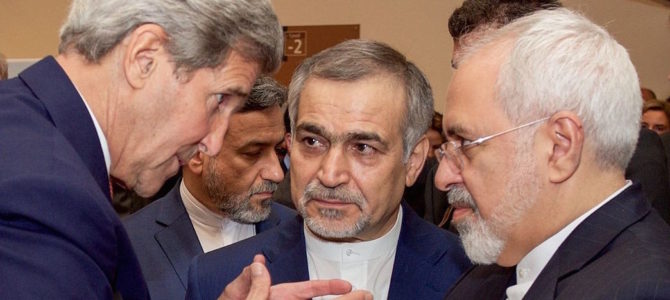According to recent reports, the United States has denied a visa to Iranian Foreign Minister Javed Zarif, thus preventing him from addressing the United Nations in New York later this week. Despite the inevitable hyperbolic reactions we are likely to witness among the press, it is our port of entry, and the United States has every right to deny admittance to any individual for a host of reasons.
The Trump Administration was correct in thwarting Zarif’s propagandized pity tour. In fact, merely hours after Qassam Soleimani’s death, the Iranian regime was already lobbying the UN to condemn the targeted killing of the Quds Force leader, referring to the action as an “assassination” and “gross violation” of international law, while alleging that Trump’s economic sanctions against the regime amounted to “economic terrorism.”
Zarif is entirely a bad faith actor, and he should be treated as such. Though the 1947 UN “headquarters agreement” typically requires the United States to grant foreign diplomats access to the United Nations’ headquarters, Washington asserts that it is permitted to deny visas for “security, terrorism, and foreign policy” reasons. Given the Iranian regime’s newfound purpose for attending the meeting, Trump’s denial seems to fall within the ambit of foreign policy concerns, given that permitting Zarif to enter and disseminate Tehran’s false message arguably would amount to a softening of the Trump administration’s “maximum pressure” campaign against Iran.
Those who challenge the merits of denying Zarif’s visa argue that the UN would provide a diplomatic forum for reducing the tensions now escalating between Iran and the United States. But this argument is divorced from the reality of why Zarif seeks to address the UN. Based on Iranian Ambassador Majid Takht Ravanhchi’s letter to the UN Security Council and to the UN’s Secretary-General, urging the UN Security Council to condemn Soleimani’s killing, Iran likely intended to utilize the large international forum, not for diplomatic purposes, but to disseminate Tehran’s highly propagandized narrative surrounding Soleimani’s killing.
In his letter, Ravanchi depicted the targeted killing of Soleimani as “an obvious example of State terrorism and, as a criminal act, constitutes a gross violation of the fundamental principles of international law, including, in particular … the Charter of the United Nations.”
Ravanchi’s line of reasoning represents a dishonesty of the highest order and mimics the same stale argument he presented in a softball interview with CNN just days ago. In that interview, Ravanchi alleged that by killing Solemiani, the US had transitioned from an economic war in the form of reimposed sanctions to an actual war. But this narrative is completely ahistorical and ignores the fact that the Iranian regime has been targeting U.S. bases, seizing control of oil tankers, and laying siege on our embassy in Baghdad these last few months. As David Marcus pointed out, “The network that fatuously insists they are all about the facts allowed the ambassador to flat out lie to the their viewers without the least bit of resistance.”
The Trump administration is not interested in lifting travel sanctions in order to provide Zarif with a larger international platform for the promulgation of the same fraudulent message that CNN so eagerly allowed on its airwaves. Ravanchi’s recent interview and letter clearly demonstrate the visit is about casting the Iranian regime as an injured victim and collecting global sympathies, which can then be used to foment anger towards America the “aggressor,” rather than about restoring peace in the Middle East.
The fact that the Trump administration is disinterested in providing a forum for this circus, as CNN did, does not indicate a lack of diplomatic grace. Rather, it evinces the Trump administration’s commitment to an honest dialogue with regards to Iran’s maneuvers within the region, which, up to this point, remained on the media’s back burner due to the media’s continuous need to salvage Obama’s Iran Deal legacy. The deal itself was always a monumental farce, in large part because it traded superficial restrictions on nuclear development while granting the Iranian regime quasi-open season in the Middle East with limited interference from the Obama administration.
The Iran Deal echo chamber worked arduously to stifle discussion of Iran as a perpetual bad faith actor. It seems the Trump administration is doing the precise opposite by refusing to provide a platform for the regime to share its nefarious narrative. As Secretary of State Mike Pompeo stated in a press conference earlier today, “Zarif is a propagandist of the first order.”
That is precisely why we likely will see the media spring into action shortly in Zarif’s defense. He is spreading the propaganda needed to justify the existence of the Iran Deal, which as I outline here, was based on a false binary from its very inception. I applaud the Trump administration for attempting to thwart the endless cycle of dishonest storytelling vis-à-vis Iran. Under the auspices of Ben Rhodes and others, I believe we’ve had quite enough.









